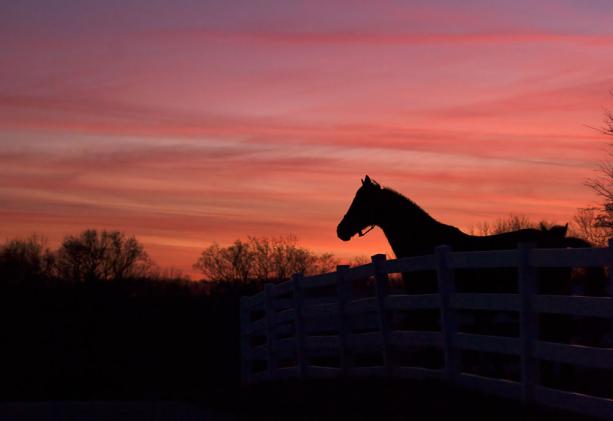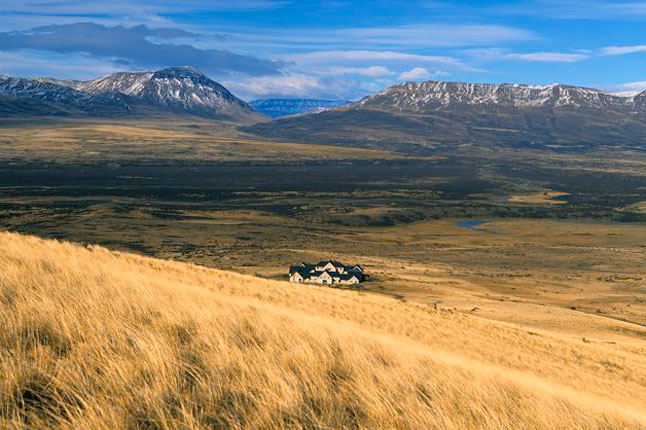Verano (part 3)
 Saturday, October 19, 2013 at 13:12
Saturday, October 19, 2013 at 13:12 The conclusion to a short story ("Summer") by this Argentine. You can read the original here.
 Zulma ended up accepting, passively. Without switching on the lights, they went to the stairs and Mariano gestured towards the sleeping girl, but Zulma hardly glanced at her and stumbled up the stairs. Mariano had to restrain her as they entered the bedroom because she was about to walk into the door frame. From the window looking out onto the wing of the house they espied the stone staircase and the most elevated terrace in the garden. You see, it's gone, said Mariano, as he straightened Zulma's pillow while watching her undress mechanically, her gaze still fixed upon the window. He got her to take her sedative, rubbed some cologne on her neck and hands, and softly drew the sheet to Zulma's shoulders. She had already shut her eyes and was trembling. He dried her cheeks, waited a moment, then went downstairs to look for the flashlight. With the flashlight switched off in one hand and a large candle in the other, he gradually went around the living door and out the lower terrace. From here he could survey the entire side of the house that faced east.
Zulma ended up accepting, passively. Without switching on the lights, they went to the stairs and Mariano gestured towards the sleeping girl, but Zulma hardly glanced at her and stumbled up the stairs. Mariano had to restrain her as they entered the bedroom because she was about to walk into the door frame. From the window looking out onto the wing of the house they espied the stone staircase and the most elevated terrace in the garden. You see, it's gone, said Mariano, as he straightened Zulma's pillow while watching her undress mechanically, her gaze still fixed upon the window. He got her to take her sedative, rubbed some cologne on her neck and hands, and softly drew the sheet to Zulma's shoulders. She had already shut her eyes and was trembling. He dried her cheeks, waited a moment, then went downstairs to look for the flashlight. With the flashlight switched off in one hand and a large candle in the other, he gradually went around the living door and out the lower terrace. From here he could survey the entire side of the house that faced east.
The night was identical to so many other summer nights: crickets were cricking in the distance; a frog was releasing two alternating drops of sound. Without using the flashlight Mariano could make out the trampled shrub of lilies, the potted plant overturned at the foot of the stairs, and the enormous tracks through the quarry of his thoughts. So it had not all been a hallucination; and of course, it was better that it hadn't been. In the morning he and Florencio would go investigate the smallholdings in the valley, and it would not be so easy for them to get down there. Before coming inside he righted the potted plant, walked over to the initial knot of trees, and listened for a while to the crickets and the frog. When he looked back towards the house, he caught sight of Zulma naked and very still in the bedroom window.
The girl had not moved. Mariano went upstairs without making a noise and began to smoke next to Zulma. You see now that it's gone, we can sleep peacefully; we'll see what tomorrow brings. Little by little he led her back to bed, got undressed, and, still smoking, lay down on his back. Sleep, everything's going to be fine, it was nothing more than a scare, an absurd scare. He put his hands through her hair, his fingers slipping to her shoulders and grazing her breasts. Without a word Zulma turned to the side, giving him her back; this, too, was like so many other summer nights.
Although it must have been very hard to do, Mariano abruptly fell asleep – almost, in fact, as soon as he had put his cigarette. The window was still open; mosquitoes would certainly float in; yet sleep, imageless sleep, won out, the total nothingness of what, at some waking moment, erupted into unspeakable panic, the pressing of Zulma's fingers on his shoulders, and panting. Almost before realizing it he was already listening to the night, to the perfect silence punctuated by the crickets. Sleep, Zulma, there's nothing, you were probably dreaming. He insisted that she agree to this and lie down again with her back to him; but she had suddenly withdrawn her hand and was sitting up, quite stiff, and looking at the closed door. Unable to prevent her from opening the door and going to the top of the stairs, he got up at the same time. He came up next to her and asked himself vaguely whether it wouldn't be better if he smacked her, brought her back to bed by force, and had his way with her in her state of petrified alienation.
Zulma stopped halfway down the stairs and leaned on the banister. Do you know why the girl is here? It was a voice that seemed like it still belonged to a nightmare. The girl? Two more steps, almost at the bend in the staircase right above the kitchen. Please, Zulma. And the cracked, almost falsetto voice: she's here to let it in, I tell you she is going to let it come in. Don't make me do something very stupid, Zulma. And then the voice, now almost triumphant, still rising in tone: look, just look if you don't believe me, the bed is empty, the magazine is on the floor. Mariano shoved his way past Zulma, and jumped down to the light switch. The girl was looking at them, her pink pyjamas were against the door to the living room, her face was sleepy. What are you doing up at this hour, said Mariano, throwing a dish cloth around his waist. With something between sleepiness and embarrassment, the girl looked at Zulma all naked as if on the verge of tears and with the sole desire of going back to bed. I got up to go to the bathroom, she said. And you went out to the garden when we told you the bathroom was upstairs. Her hands comically vanishing into her pyjama pockets, the girl began to convulse into a sob. Ok, it's nothing, just go back to bed, said Mariano, stroking her hair. He tucked her in and placed the magazine underneath her pillow. The girl turned towards the wall, a finger in her mouth in consolement.
Go upstairs, said Mariano, you see that nothing's happening, don't just stand there like a sleepwalker. He saw Zulma take two steps towards the living room door and stepped right in her way. Everything down here was fine, damn it all. But don't you realize that she opened the door for it, said Zulma in that voice that wasn't her own. Stop your silliness, Zulma. Go see if you're not sure, or let me go see. Mariano's hand seized her forearm which was trembling. Go upstairs right now, he said pushing her until he had brought her to the foot of the stairs; in passing, he looked back at the girl who hadn't budged, who must have already fallen asleep.
On the first step Zulma screamed and tried to escape. But the staircase was narrow and Mariano, holding her by her shoulders, pushed her with his whole body, the dish cloth coming undone and slipping off at the foot of the staircase. He dragged as far as the landing, threw her in the bedroom, and closed the door behind him. She's going to let it in, Zulma repeated, the door is open and it's going to come in. Go to bed, said Mariano. I'm telling you that the door is open. Who cares, said Mariano, it can come in if it likes, now I don't give a damn whether or not it comes in. He caught Zulma's hands as they tried to push him away and shoved her onto her back on the bed. They fell down together, Zulma sobbing and begging, incapable of moving beneath the weight of a body that stuck to her ever the more tightly, that furiously bent her into murmured consent, mouth to mouth, between tears and obscenities. I don't want to, I don't want to, I never want to again. But it was too late, her strength and pride were yielding to this oppressive weight that brought her back to an impossible past, to the summers without letters and without horses. At some point everything cleared up; Mariano got dressed in silence and went downstairs to the kitchen; the girl was sleeping with her finger in her mouth; the door of the living room was open. Zulma had been right, the girl had opened the door; but the horse had not come into the house. Unless – he thought, lighting his first cigarette and gazing upon the blue edge of the hills – unless Zulma had also been right about this and the horse had indeed entered the house. But how could they know if they hadn't heard it, if everything was still in order, if the clock continued measuring the morning, and if after Florencio came to pick up the girl, perhaps around twelve, the postman whistling from afar left on the garden table the letters which he or Zulma would collect without saying a thing, a small while before agreeing on what they wanted to have for lunch.



